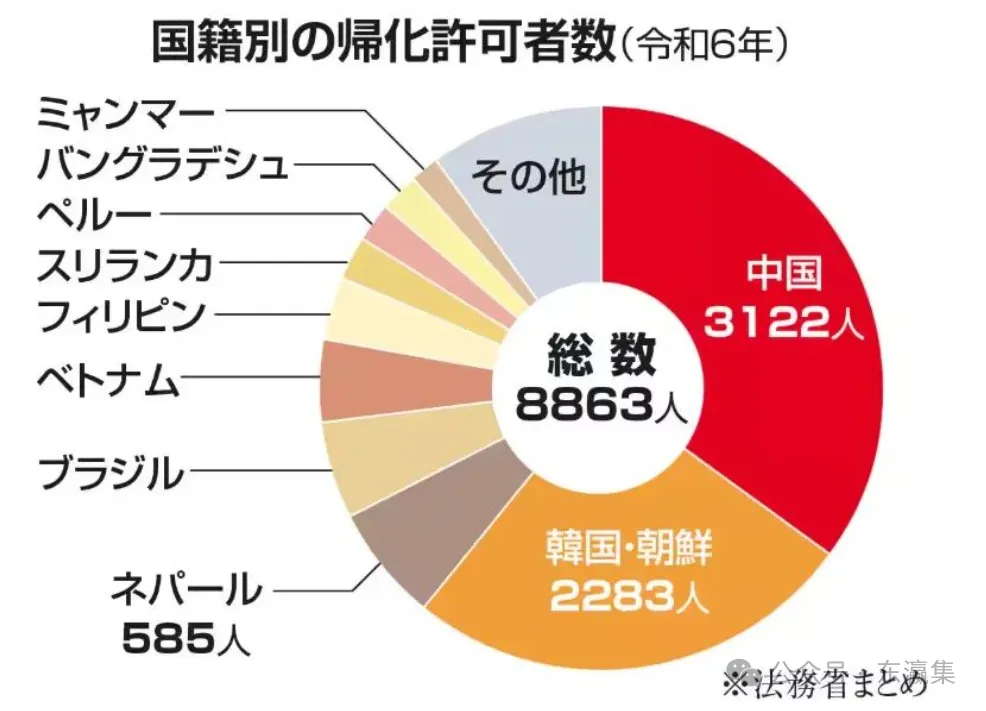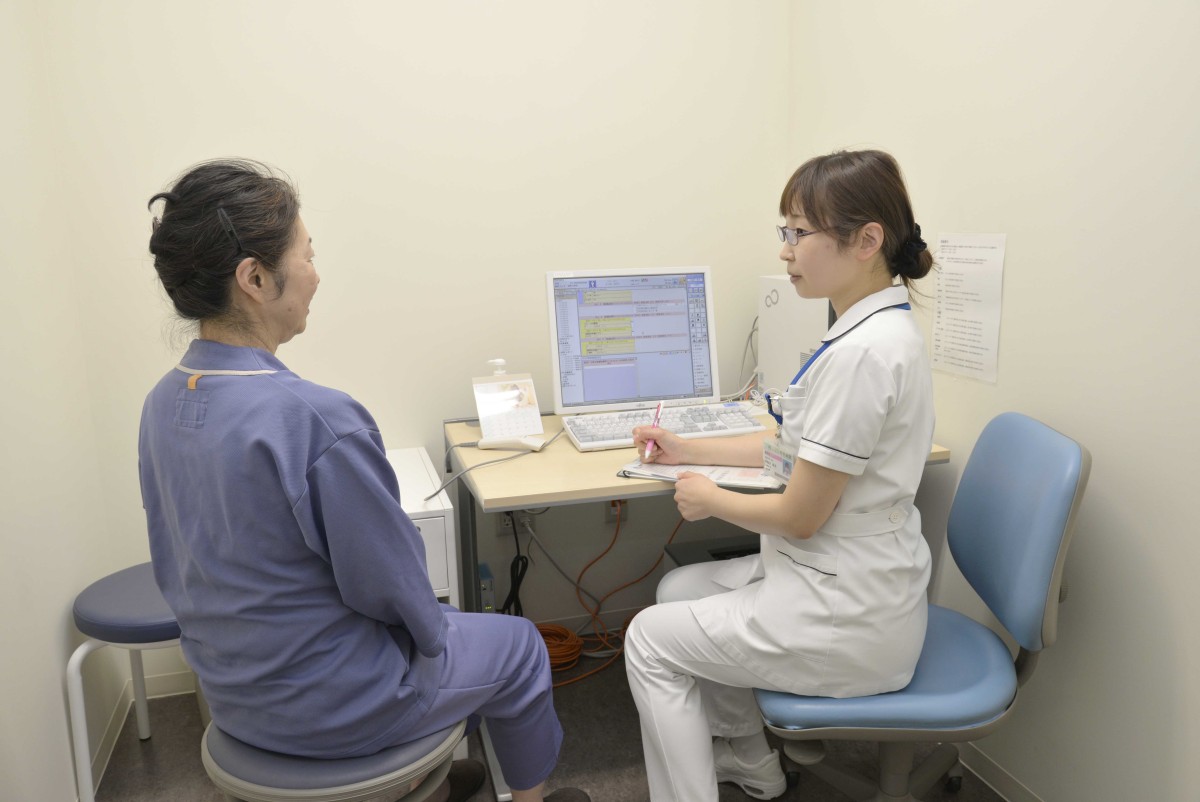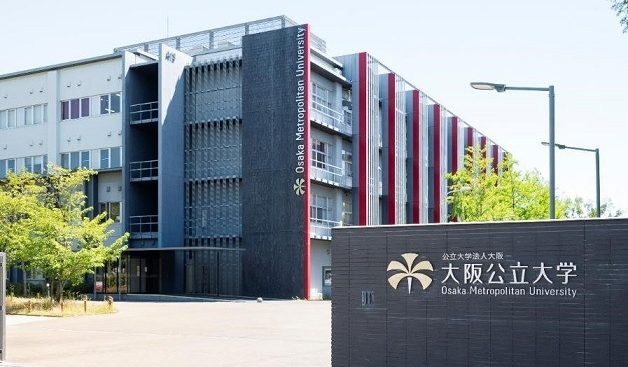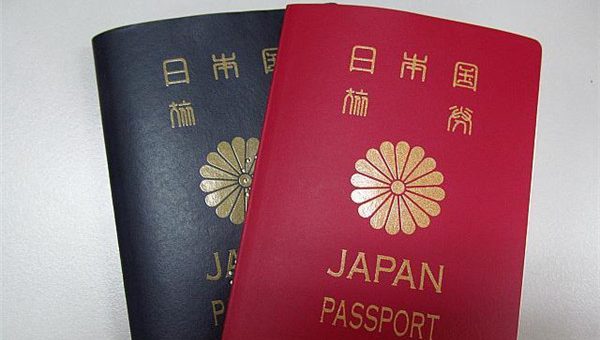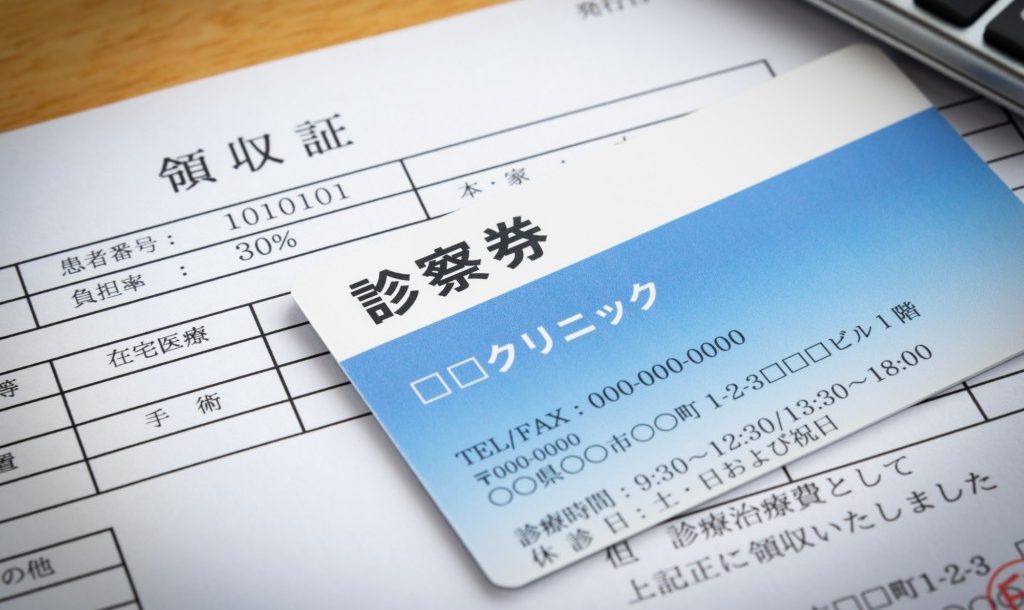Acquiring permanent residency in Japan typically takes 10 years. However, opting for the Highly Skilled Professional visa can significantly shorten the timeline for permanent residency. Many foreigners residing in Japan have expedited their permanent residency through this system.
In an effort to attract more foreign talent, the Japanese government has introduced a new category called "Special Highly Skilled Professional" on top of the existing Highly Skilled Professional visa. This system, launched on April 21, 2023, aims to facilitate the entry of overseas individuals with outstanding knowledge and skills.
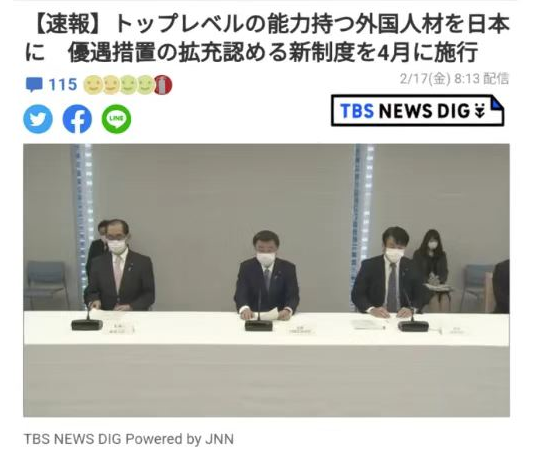
Compared to the original Highly Skilled Professional system, the "Special Highly Skilled Professional" visa stands out in three key aspects:
- Possession of a master's degree or higher, with an annual income exceeding 20 million Japanese yen.
- Over 10 years of work experience, coupled with an annual income surpassing 20 million Japanese yen.
- Engaged in managerial roles for at least five years, with an annual income exceeding 40 million Japanese yen.
Individuals meeting any of the aforementioned criteria are eligible to apply for the Highly Skilled Professional Type 1 visa, which is valid for five years and exempt from point-based evaluation. After one year, holders can transition to a Type 2 visa or directly apply for Japanese permanent residency.
To summarize, the Japanese government is streamlining the path for educated, skilled, and financially capable foreigners. Notably, with an annual income exceeding 20 million yen, the individual income tax is approximately 8 million yen, and when the income exceeds 40 million yen, the annual tax approaches nearly 20 million yen. This represents a lucrative return for the Japanese government.
For those familiar with the Highly Skilled Professional visa, achieving a score of 80 points allows for permanent residency after just one more year of work in Japan. In contrast to the multifaceted point-based system for Highly Skilled Professionals, the "Special Highly Skilled Professional" simplifies the criteria to educational/work capabilities and high income, making it suitable for individuals excelling in either of these areas.
In the global race to attract talent, Japan's introduction of the "Special Highly Skilled Professional" category underscores their eagerness to attract high-caliber individuals. However, individuals with an annual income exceeding 20 million are undoubtedly considered elite, raising the question of whether those at this level are willing to forego countries like the USA, Europe, Canada, Australia, or New Zealand in favor of Japan.
Japan's Highly Skilled Professional policy, launched in 2012, aims to attract talent worldwide. It expedites foreign nationals' access to permanent residency benefits through a point-based system. When an applicant accumulates a total score of 70 points, they can apply for permanent residency after residing in Japan for three years. Achieving a score of 80 points reduces the residency requirement to just one year, offering a substantial shortcut compared to the traditional path to Japanese permanent residency.
Based on foreign nationals' engagement in academic pursuits, employment, and entrepreneurship in Japan, the policy is categorized into three major classes:
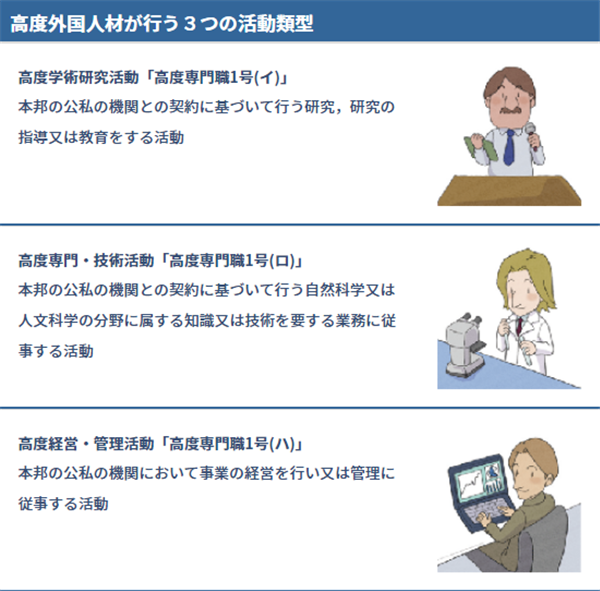
Highly Skilled Professional Type 1
Specialized Academic and Research Activities
(Examples: University professors, teachers, researchers, Ph.D. holders, etc.)
Highly Skilled Professional Type 2
Specialized Technical Activities
(Examples: Architects, designers, engineers, IT developers, etc.)
Highly Skilled Professional Type 3
High-Level Management Activities
(Examples: Corporate management, directors, department managers, CEOs, specialized professionals, sole proprietors, etc.)
[Education] + [career] + [annual income] + [age] + [bonus] + [others] = certified points
Applicants can refer to the point calculation table released by the Japanese Immigration Bureau to determine their score. Achieving a score of 70 points or more qualifies individuals to apply for the Highly Skilled Professional visa.
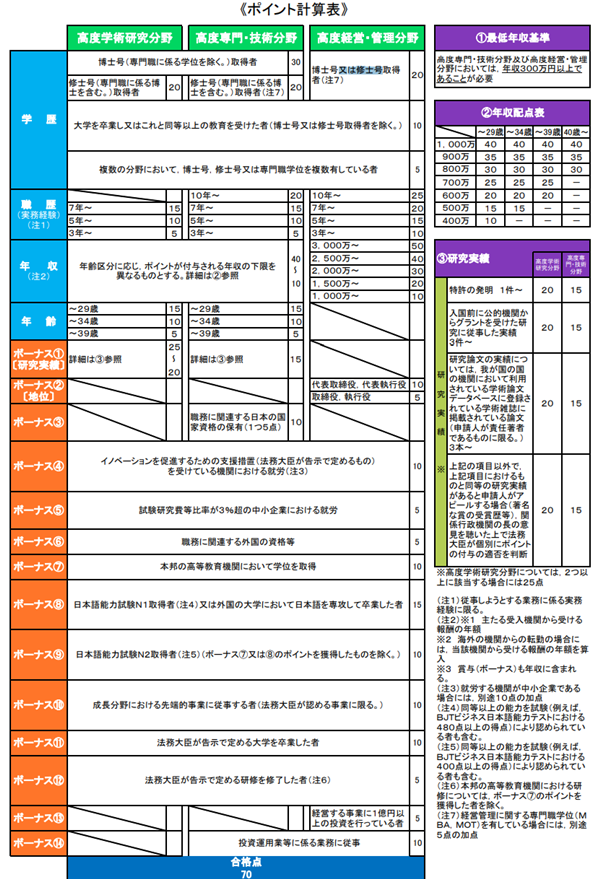
Example 1:
Master's degree (20 points)
3 years of work experience (5 points)
Annual income of 6 million yen (20 points)
25 years old (15 points)
Possession of N1 certification (15 points)
Total points: 75 Qualifies for permanent residency after living in Japan for 3 years.
Example 2:
Ph.D. degree (30 points)
5 years of work experience (10 points)
Annual income of 8 million yen (30 points)
32 years old (10 points)
Possession of N1 certification (15 points)
Total points: 80 Eligible for permanent residency after just 1 year of residence in Japan.
Having the Highly Skilled Professional visa does not necessarily require applying for permanent residency. After obtaining the "Highly Skilled Professional Type 1" visa, individuals can apply for the "Highly Skilled Professional Type 2" after three years. Compared to permanent residency, both Type 1 and Type 2 visas offer special advantages.
In 2022, the Japanese government revised the "Highly Skilled Professional Point System," with a focus on adding the "employment in companies supported by local governments" category. Previously implemented in areas such as Tokyo, Kyoto, Fukuoka, Kitakyushu, Sendai, Hiroshima, and others, the local employment additional scoring system is now expanded nationwide. Foreign high-level talents working in local enterprises receive preferential treatment, reducing the threshold for obtaining permanent residency. The added category of "experience working in local companies" can be converted into 10 points. Compared to increasing points through higher income or academic qualifications, this undoubtedly further broadens the scope of eligibility for permanent residency.
For further details on Japan's policies for highly skilled professionals, please refer to:
